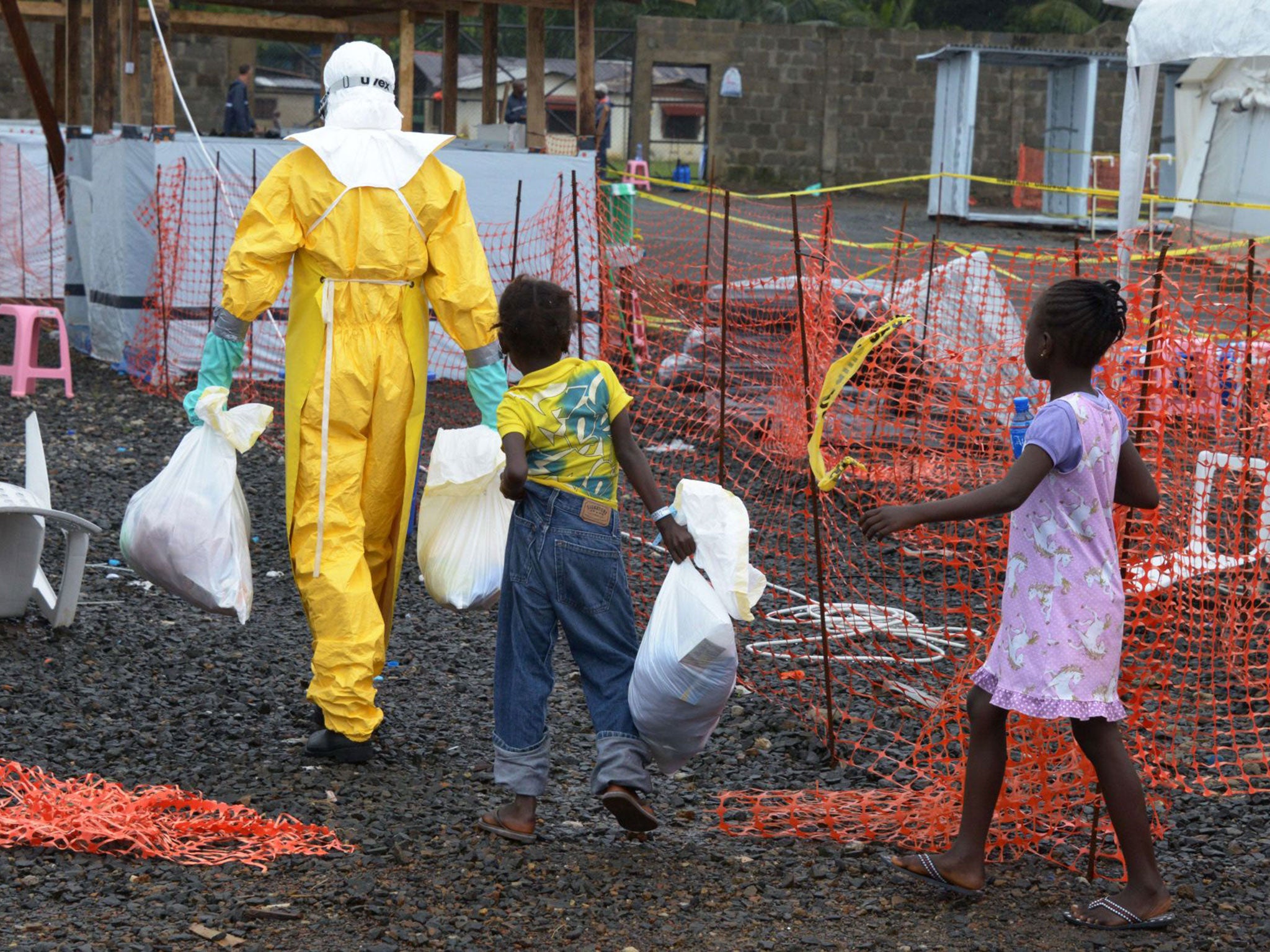Ebola crisis in Liberia: The orphans of Monrovia's 'hotel' tent
As Liberia's death toll tops 2,000, a medical aid worker reports from the capital's Elwa 3 centre

Your support helps us to tell the story
From reproductive rights to climate change to Big Tech, The Independent is on the ground when the story is developing. Whether it's investigating the financials of Elon Musk's pro-Trump PAC or producing our latest documentary, 'The A Word', which shines a light on the American women fighting for reproductive rights, we know how important it is to parse out the facts from the messaging.
At such a critical moment in US history, we need reporters on the ground. Your donation allows us to keep sending journalists to speak to both sides of the story.
The Independent is trusted by Americans across the entire political spectrum. And unlike many other quality news outlets, we choose not to lock Americans out of our reporting and analysis with paywalls. We believe quality journalism should be available to everyone, paid for by those who can afford it.
Your support makes all the difference.Maybe it was because Samuel has the same name as my son, now a man, or because he is the same age as my eldest grandson, eight – or just because of his ready smile and gentle, friendly nature – but something about this little boy captured my heart.
He came with his mother from outside Monrovia, no one knows from exactly where, but when his mother died from Ebola in our treatment centre in the city, called Elwa 3, we had no information about his remaining family and no way to contact them, so he ended up in the "hotel" tent.
The people in the hotel tent, based inside the centre, are those who are cured and those who have tested negative for the virus but the lab results came in too late in the day to organise transportation home. They stay overnight in the tent and are then taken home by relatives or in our taxi the next day.
However, more and more often we end up with children whose parents are sick in the treatment centre, but they have not contracted the disease themselves. Or those whose parents have died and we have no details of extended family. Or those whose family have rejected them through fear of Ebola.
Samuel fell into the middle category. Initially he had the company of a few other children and they seemed to be having great fun playing with each other and with the toys we had found for them.
Slowly, the number of these children dwindled as relatives were traced, until finally Samuel was sat all alone – no one to play with and no one in the world to love or look after him.
All through this, Samuel sat, smiling bravely when anyone spoke to him, while our support unit desperately searched for someone, somewhere who we could send him to. I sat with him and we drew pictures – his smile and laughter were infectious, and quite amazing considering his circumstances. We have a no-contact policy, so I couldn't even give him a hug, but he seemed to enjoy any company, no matter how limited. He was a delightful boy: polite, eager to learn, and utterly charming.
Eventually the authorities managed to match him with a person who had survived Ebola, but I heard that the community they were placed in would not accept their presence due to the fear of Ebola, and they had to be moved.
I didn't see Samuel to say goodbye. One day he was there and the next gone. I try not to think about him. I should know better than to become too fond of anyone who comes to our centre. It makes working here harder because stories of tragedy lie behind all the dead in our morgue.
I make sure I stick to my job – infection control – I check the protocols are observed and make sure that, as much as possible, there is a safe working environment.
The hotel tent continues to fill with babies and small children, and we see only the tip of the iceberg. There must be many more like them in the community who have no one to find them a home.
Cokie van der Velde is a sanitation specialist with Médecins Sans Frontières. You can make a donation to help MSF's work at msf.org.uk
Join our commenting forum
Join thought-provoking conversations, follow other Independent readers and see their replies
Comments